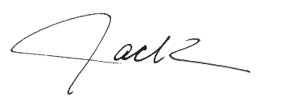Dollars Alone are
No Foundation for Education
Jack Cashill's newest book:
“Scarlet Letters: The Ever-Increasing Intolerance of the Cult of Liberalism Exposed"
![]()
© Jack Cashill
Published in Ingramsonline.com - June 2015
Sure, we can spend more on early childhood programs. But to what end?
If things go as planned, Kansas City voters will soon be asked to increase the Kansas City school district’s current levy of 21 percent, from $4.95 to $6.00. The money will provide universal preschool for Kansas City children. On language alone, this could be the most irresistible ballot measure since the Puppy Mill Cruelty Prevention Act of 2010.
The initiative is the brainchild of the Early Learning Commission. Its founders include Kansas City school district, the Mid-America Regional Council, and sundry civic leaders, most prominently Herb Kohn of Bryan Cave, who chaired the learning commission’s launch.
I called Kohn, a guy I know and respect, to get his take on the program. He explained that the levy increase would have a five-year sunset clause. This feature may lull voters into approving the measure, but it ought not. Once approved, pre-K is forever. The sunset clause allows the ELC to seek state approval for a geographically broader taxing district before the tax expires.
Although the pre-school program would cost roughly $8,000 per year per child, Kohn made the entirely logical argument that if the program could keep kids in school and out of the juvenile-justice system, it would more than justify its costs.
Superintendent Dennis Carpenter of the Hickman Mills school district, which implemented pre-K this past year, believes the program will work as promised. For confirmation, he looks forward to the tests of incoming kindergartners in 2015. “I can’t wait to compare them to 2014,” he told The Star.
If Kansas City’s pre-K program is to succeed on Kohn’s terms, however, students must hold their edge not just over a summer—that’s easy enough—but all the way through to high school graduation. According to The Star, the Early Learning Commission is promising city taxpayers “a stronger generation of college- and career-ready graduates.”
Unfortunately, there is no reason to believe this promise will be met. In 2010, President Obama’s Department of Health and Human Services presented the results of a huge, comprehensive assessment of the Head Start program, a federalized version of the Kansas City plan.
Researchers employed the gold standard of their profession—a large national sample with a randomly selected control group. What they discovered was that Head Start alumni had lost their edge by the end of the first grade.
“These results were so shocking that the HHS team sat on them for several years,” wrote Time magazine’s liberal columnist Joe Klein. “Head Start simply does not work.”
Two years later, HHS followed up with its assessment of third-graders who had been enrolled in the program. The fact that the results were released on the Friday before Christmas suggests just how unwelcome they were.
According to the 2012 HHS report, “By third grade, the $8 billion Head Start program had little to no impact on cognitive, social-emotional, health, or parenting practices of participants. On a few measures, access to Head Start had harmful effects on children.”
In 2013, the liberal Brookings Institute weighed in on the first large-scale, randomized trial of a state preschool program. The state was Tennessee. The assessment was done by Vanderbilt University. The results, according to Brookings’ Russ Whitehurst, an expert in the field, were “devastating for advocates of the expansion of state pre-K programs.”
According to Whitehurst, the students enrolled in the Tennessee program performed “somewhat less well on cognitive tasks at the end of first grade than the control group.” As to social and emotional skills, the enrolled students did no better. In fact, they did marginally worse.
What troubled Whitehurst was that too many pre-school advocates “have turned a blind eye to the mixed and conflicting nature of research findings on the impact of pre-K for four-year-olds.”
One such advocate would seem to be Jerry Kitzi, Kohn’s go-to guy and the director of early and expanded learning for the Kansas City district. I emailed Kitzi and asked if there were any studies that should make me question the HHS and Vanderbilt results. Said Kitzi, “I quit pursuing new research articles quite a while ago.”
Kitzi admitted that after convincing himself of the value of pre-K some years back, “I drank the Kool-Aid and focused my energy on improving the quality of early learning programs.”
Uneasy about a Kool-Aid fueled initiative, I called Kohn back and shared my misgivings. I was kind of hoping he would say, “You’re right, Jack. Let’s shut this effort down.” Instead, Kohn volunteered to take me to see one of Kitzi’s programs in action.
I had no doubt that the “optics” would be cheery, but a visit could not begin to confirm the likelihood of “a stronger generation of college- and career-ready graduates.” I offered to go, but school was already out.
Instead, Kohn connected me with Jim Caccamo, director of the Department of Early Learning at MARC, another well-meaning guy who had convinced himself that “the overwhelming preponderance of data” supported the ELC’s initiative. When I asked for research that would refute the HHS and Vanderbilt studies, Caccamo sent me a series of opinion pieces that made much the same faith-based case he and Kitzi had made.
Caccamo cited, for instance, the work of pre-school guru Steven Barnett, who concluded, “Head Start produces modest benefits, including some long-term gains for children.” That was it, and we had to take Barnett’s word for even this humble claim.
Kohn, Kitzi and Caccamo all agreed that avoiding the “fade-out factor” and sustaining the pre-K advantage hinge on the quality of the student’s K-12 education. For most students, this means a trip through Kansas City’s public schools, the proverbial elephant in the room.
“Nobody wants to look at that,” Caccamo admitted. With good reason: the district has been foundering for at least the past 40 years. An optimist, Caccamo believes that the district is “on a trajectory to get back their accreditation.” Talk about a low bar!
More troubling, the district itself will hire the staff and help manage the program with the commission. More troubling still, Superintendent Steve Green, who led the district to its current “provisional” accreditation, is leaving for Atlanta.
Lest anyone think otherwise, I am even fonder of children than I am of puppies, but I can think of many better ways to smarten kids up and many places better to smarten them up in than the Kansas City school district.





